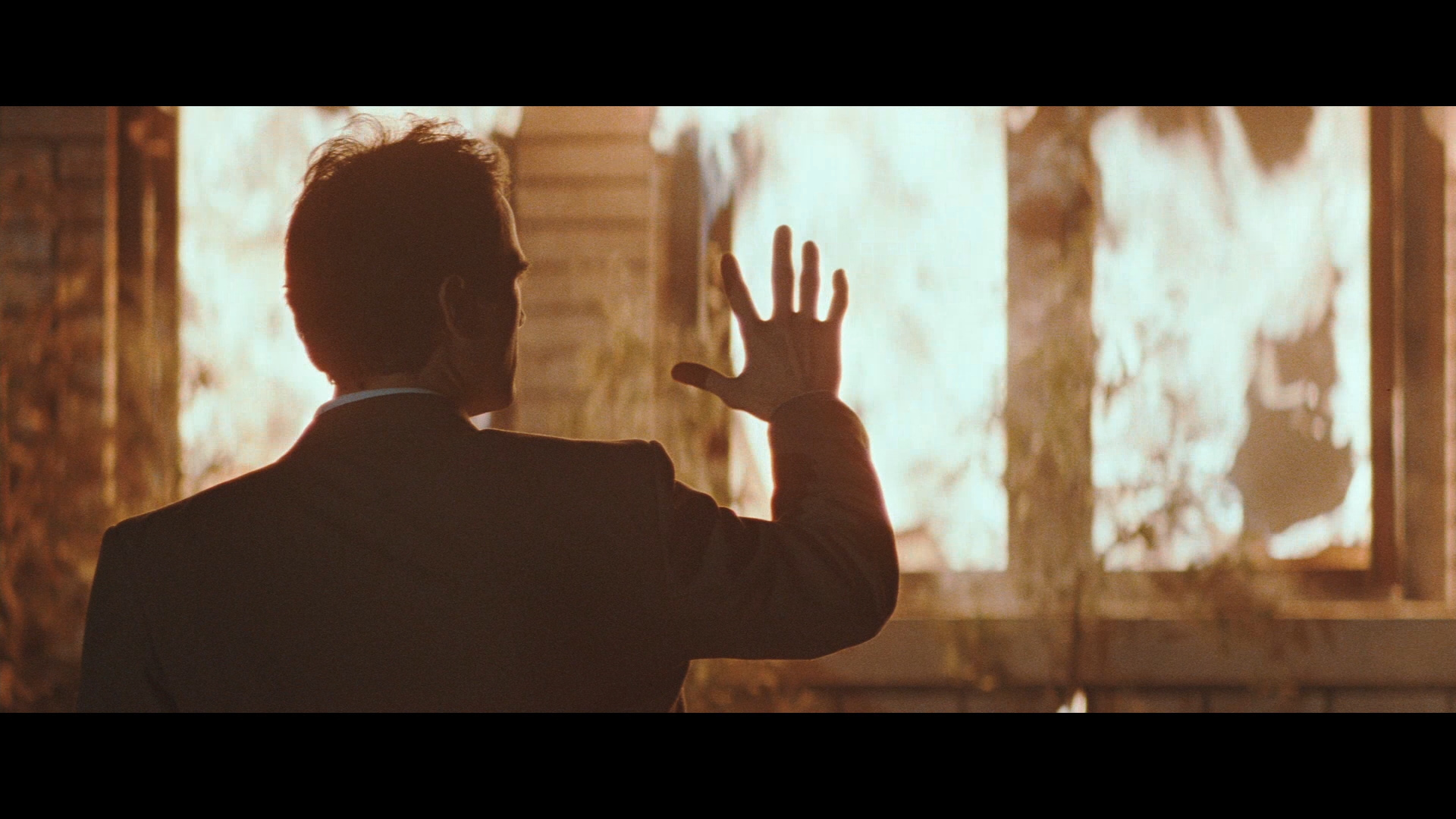It’s been just over two decades since Atom Egoyan made The Adjuster, his fourth feature and most experimental film. Egoyan’s thematic preoccupations have stayed consistent throughout his entire career (particularly the cinematic representation of truth in narrative) but it is only in The Adjuster that Egoyan ever delved into a resolutely impenetrable deeper level of thematic abstraction–a point of no return, where viewer identification is for naught in a seemingly joyless absurdist tragedy.
That The Adjuster is barely remembered years later is somewhat of a travesty, as it is not only one of Egoyan’s best (and certainly his most audacious and sublime work) but also an especially Canadian film. Its protagonist, insurance adjuster Noah Render (Elias Koteas) is an exemplary Canadian anti-hero, an ambivalent and seemingly lost man with past trauma and nothing in his surroundings that could possibly help him.
Unlike other quintessential Canadian films that feature “failures” of masculinity, major characters in The Adjuster is in a similarly troubled position and given a modicum of attention. Unlike the emotional baggage of Egoyan’s other characters, such as the grieving parents of the school-bus accident in The Sweet Hereafter, the characters in The Adjuster are more ciphers than human beings, and the film never gives ample time or room to explore the root causes of their non-existence. What is here and now, though unfathomable for the viewer, is an essential experience that asks more questions than it can answer.
The Adjuster follows Noah as he deals with clients whose houses have burned down, and whose claims he is “adjusting” to ensure all their lost assets are replaced. He checks his clients into a motel as they await their claims to be filed. He visits often to discuss business and engage in sexual activity with them. Praised and essentially worshipped by his clients (the hotel, too, thanks him graciously time and time again for helping people and keeping their business alive), Noah, should be noted, also has a family that may or may not actually be his own. While appearing warm, considerate and altruistic upon first encounter, Noah’s repeated encounters with clients reveal a much more disturbing image: that of a broken record, whose scripted one-liners (“You are in a state of shock”) unravel his own cavernous hollows of emotional depth. His wife Hera (Arsinee Khanjian) works for the Ontario Film Review Board, wherein she watches, filters, and secretly records pornography, films that the viewer can only hear, never see. Inside their house–a demo model on an empty lot that the developer sold to Noah after it went bankrupt–her sister Seta spends her days burning photos from their Armenian home while Hera’s blank-faced son, Simon, looks on. Rounding out the cast (among others, including Don McKellar in a disturbingly lecherous role, with a part of the lechery stemming from a far-too-curly hair style) is the couple Mimi and Bubba, whose sexcapades–on subways and football fields–defy logical explanation. It is also quite unclear if they are indeed, partners; one scene seems to suggest they may be siblings.
As in many of Egoyan’s films, characters attempt unsuccessfully to use technology to make a human connection. Within the first few minutes of the film, Noah, restlessly awake in the middle of the night beside his sleeping wife, gets a call to see to a fire. He doesn’t awake Hera before he leaves, but then decides to do so anyway by phoning her while driving to the accident (these were the days when car phones still existed). Their awkward conversation–she asks why he bothered to wake her up–is the viewer’s first clue into Noah’s discombobulated world. Similarly, Hera records the films she filters at work for her sister Seta, who is uneducated and does not understand Hera’s job. While she initially started watching the films to learn more, Seta becomes, as Noah disconcertedly tells Hera, addicted to watching the porn films, though she is also immutably against assimilating into her family’s new culture. Burning photos from her home country is an unusual form of cultural survival that allows her to erase her past whilst ensuring she has no present or future. These are the only ideas that spring to mind when trying to explain the actions of the nearly-mute Seta, or virtually anybody else in the film. The strangest of the bunch are Mimi and Bubba, as they appear to have regressed into childlike (though for Mimi, still sexual) versions of themselves who can barely sustain coherent conversation. Mimi’s character is nothing if not a hedonistic but delusional woman who prances around theatrically, thanking Bubba for the great spectacles he arranges for her. Sexual encounters in The Adjuster are inherently sad, augmenting the disquieting, disconnected dynamics between characters. One particularly distressing scene–though it borders on absurdly risible–has Noah having sex with one of his new clients Arianne (Jennifer Dale) while they discuss, and even argue, amidst breath-choked moans, in great detail, the fact that she has to, but doesn’t want to, make a list of her assets for her claim.
Egoyan characters always have strange motives that are never entirely clear until the final few minutes in the film, with some narratives proving more devastating than others (his strategy has worked less and less effectively over time, including the regrettable Where The Truth Lies and Adoration). But there is typically an answer, even an oblique one, to the seemingly irrational paths his characters take. The Adjuster is an exception. Instead of providing answers, or even inviting the viewer to conjecture, Egoyan assures us that it is indeed impossible to make sense of character motive, but that sometimes, it need not matter.

